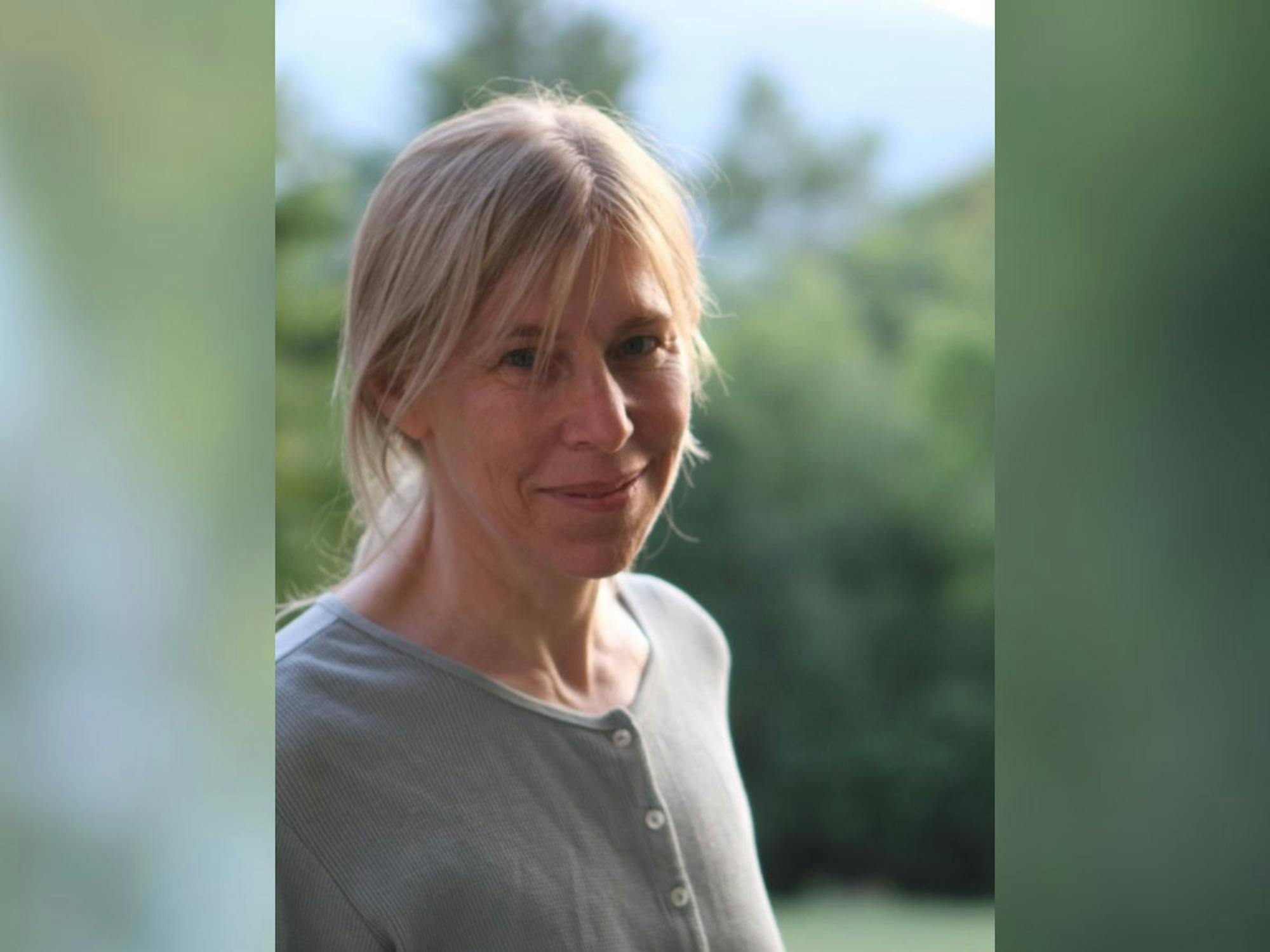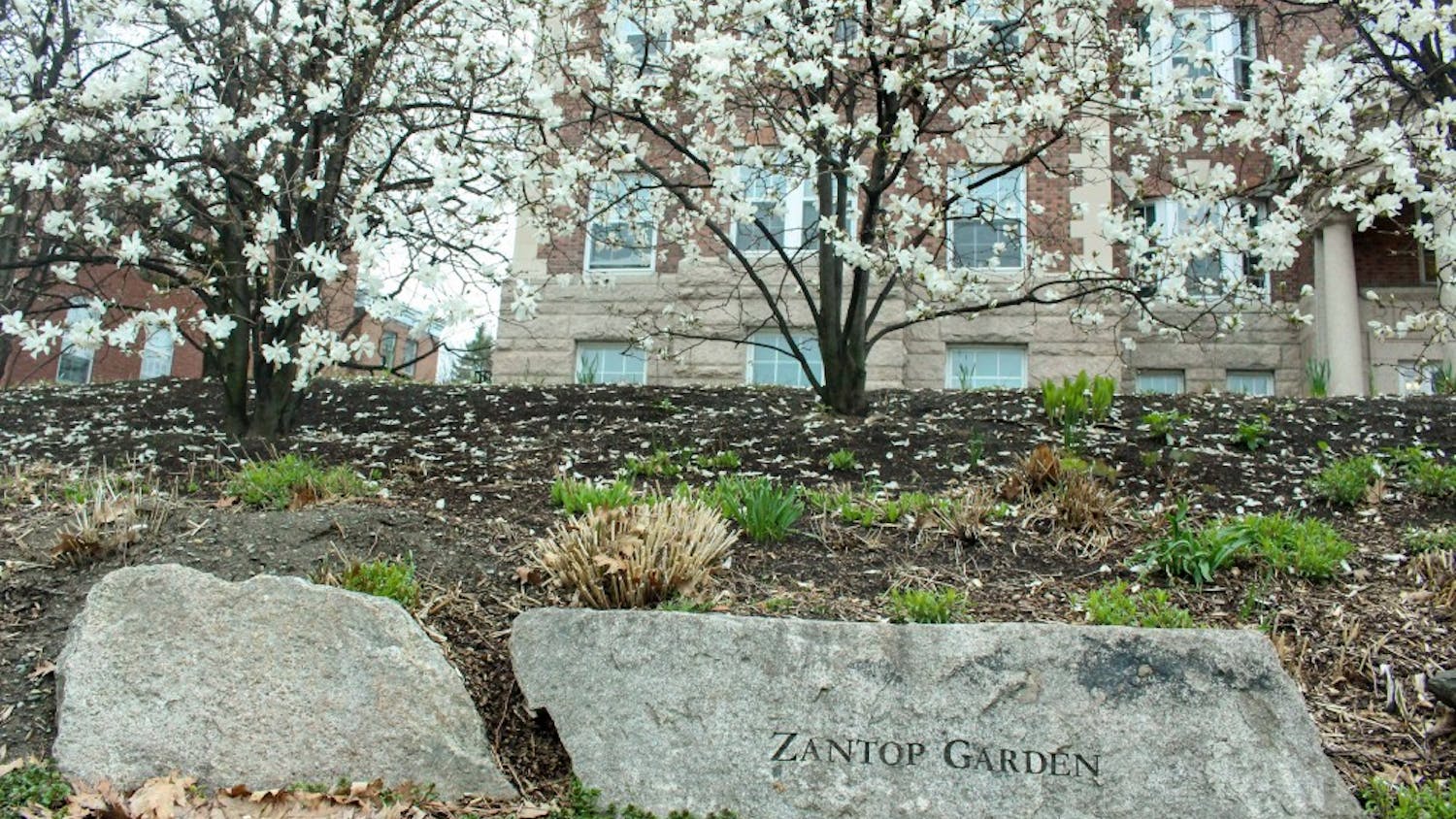Last Wednesday, The New York Times Baghdad bureau chief Alissa Rubin delivered a virtual lecture, hosted by the Rockefeller Center for Public Policy, titled “Fact-Based Journalism in an Age of Suspicion.”
The event, moderated by English professor Alexis Jetter, was this year’s Bernard D. Nossiter ’47 lecture — an annual lecture first put on in 1994. Nossiter, who graduated from Dartmouth in 1947, was a reporter for the Washington Post for 24 years and chief of the United Nations Bureau of the New York Times.
Rubin, a recipient of the 2016 Pulitzer Prize for International Reporting, has worked in 25 different countries, including Iraq, Kosovo and Afghanistan. During her career as a journalist, Rubin has covered issues including farm economies, abortion politics and female suicide bombers.
She began her talk by speaking to the recent decline of public trust in the media, pointing to a Morning Consult poll that between 2016 and 2020 showed a 9% drop in trust of major news outlets.
“If people either do not read what we write or immediately discount it, then a journalist’s raison d'être — their power in the public square to add to the debate and to help people make sense of the complexities of modern life — is lost,” Rubin said.
Rubin said that solving citizens’ mistrust will require “radical empathy” on the part of reporters.
“This is my constant mantra: put yourself in the shoes of the person you are interviewing,” Rubin said. “That person can be a battered woman in Afghanistan, a member of Congress or an al-Qaeda operative — every one of them got to where you met them after living a particular life in a particular place.”
Responding to an audience question about citizen journalism, Rubin noted the “important role” the public has to play in documenting consequential events and helping to point trained journalists toward stories they might otherwise miss. Footage captured by citizen journalists of the May 2020 murder of George Floyd as well as the ongoing Syrian conflict, for example, has been vital to trained journalists in their coverage, she said. In the case of Syria, according to Rubin, news outlets would have “no idea what was going on in that country” without cell phone footage and other information shared by citizens.
In response to another audience question about the withdrawal of troops from Afghanistan, Rubin said she was “very torn.” While the U.S. has spent money and lost lives in Afghanistan, she added that the U.S.’s military presence has helped girls safely attend school.
Rubin noted her fear over the U.S.’s decision to withdraw from Afghanistan, saying she was “horrified about what will happen to women.”
Jetter went on to ask Rubin about the recent Israeli air strike that destroyed a Gaza building housing Al Jazeera and Associated Press offices.
“[The air strike] is no different from so many other states — Syria did that repeatedly, killing both Western and Syrian journalists,” she said. “It was a very calculated choice; it yielded what [the Isreali military] would probably like — fewer pictures.”
In an interview after the event, Rubin described her career reporting from war-torn territories.
“Part of my job is to remind people that the war the person has had to live through is not over — it will probably touch them and affect them forever,” Rubin said. “War makes you understand how important and wondrous life is — very small moments of beauty, peace and possibility.”
Returning to declining trust in the media, Rubin said that as a journalist, she hopes to encourage knowledge, understanding and trust.
“I believe in people’s desire for some understanding, and what some of the resentment of the media comes from is that they don’t feel listened to,” Rubin said. “Part of my job is to listen better, and then to explain things in a way that doesn’t alienate or belittle people.”
Jetter said in an interview that she has taught Rubin’s writing in her own classes, including WGSS 07.04, “Women in Journalism” and ENGL 6, “Narrative Journalism: Literature and Practice.” Jetter added that she admired Rubin’s ability to build trust among sources.
“She’s someone who wins people's trust, and clearly she [has] asked enough questions [to her interviewees] that they felt like she saw them as human beings,” Jetter said. “She probably knows more than almost any other foreign correspondent about a lot of the conflicts in the world, and a lot of the nuances of human nature — she’s an observer.”
Jetter said the rise of misinformation and partisanship in recent years and the parallel decline in trust of media made the event particularly timely.
“There’s a war on the media at a time when the media is itself embattled,” Jetter said. “I found her to be both inspiring in terms of what she does — the care, intelligence, sensitivity and really the lack of ego she brings to it.”
Jon Fox, a resident of Hanover, said while he enjoyed attending the event, he questioned whether the difficulty of crossing partisan lines in the media was addressed.
“She’s preaching to the choir, but the people that she needs to get to are not those people listening to NPR or PBS — the problem is, how do you cross those barriers?” Fox said.



![Krishna_Priya (c) Edlyn D'Souza[2] copy.jpg](https://snworksceo.imgix.net/drt/2d45798b-c76b-4b3e-a89a-ad5c4a918405.sized-1000x1000.jpg?w=1500&ar=16%3A9&fit=crop&crop=faces&facepad=3&auto=format)

